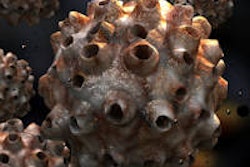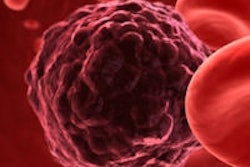More than a third of patients with oropharyngeal cancers also carried antibodies to one of the key cancer-causing proteins of the human papillomavirus (HPV), according to a new study in the Journal of Clinical Oncology (July 20, 2013, Vol. 31:21, pp. 2708-2715).
Cancer Research UK scientists at the University of Oxford compared blood samples from 938 patients with head and neck, esophageal, and oropharyngeal cancers with 1,599 people without the disease.
The cancer-causing protein from the HPV16 virus is called E6, and these antibodies could be detected in patient's blood even in samples taken more than 10 years before the cancer was diagnosed, the researchers found. By comparison, less than 1% of people without cancer carried the antibodies in their blood.
In human cells, HPV's E6 protein disables the p53 protein, which is often called the guardian of the genome because it protects cells from DNA damage and cancer development. Having antibodies against this HPV protein in the blood indicates that HPV's cancer-causing processes have been activated before.
The scientists estimated that about 7 in 100 nonsmoking women and about 23 in 100 nonsmoking men who carry the E6 antibody in their blood will develop oropharyngeal cancer over 10 years.
But patients with oropharyngeal cancers linked to having the HPV infection were more likely to survive than people whose cancers weren't related to the infection. Five years after diagnosis, 84% of people with the HPV16 antibodies in their blood were still alive, compared with 58% of people without the antibodies.
The study authors noted that their results provide some evidence that HPV16 infection may be a significant cause of oropharyngeal cancer.



















